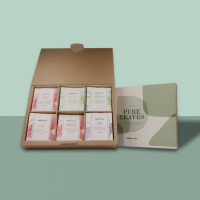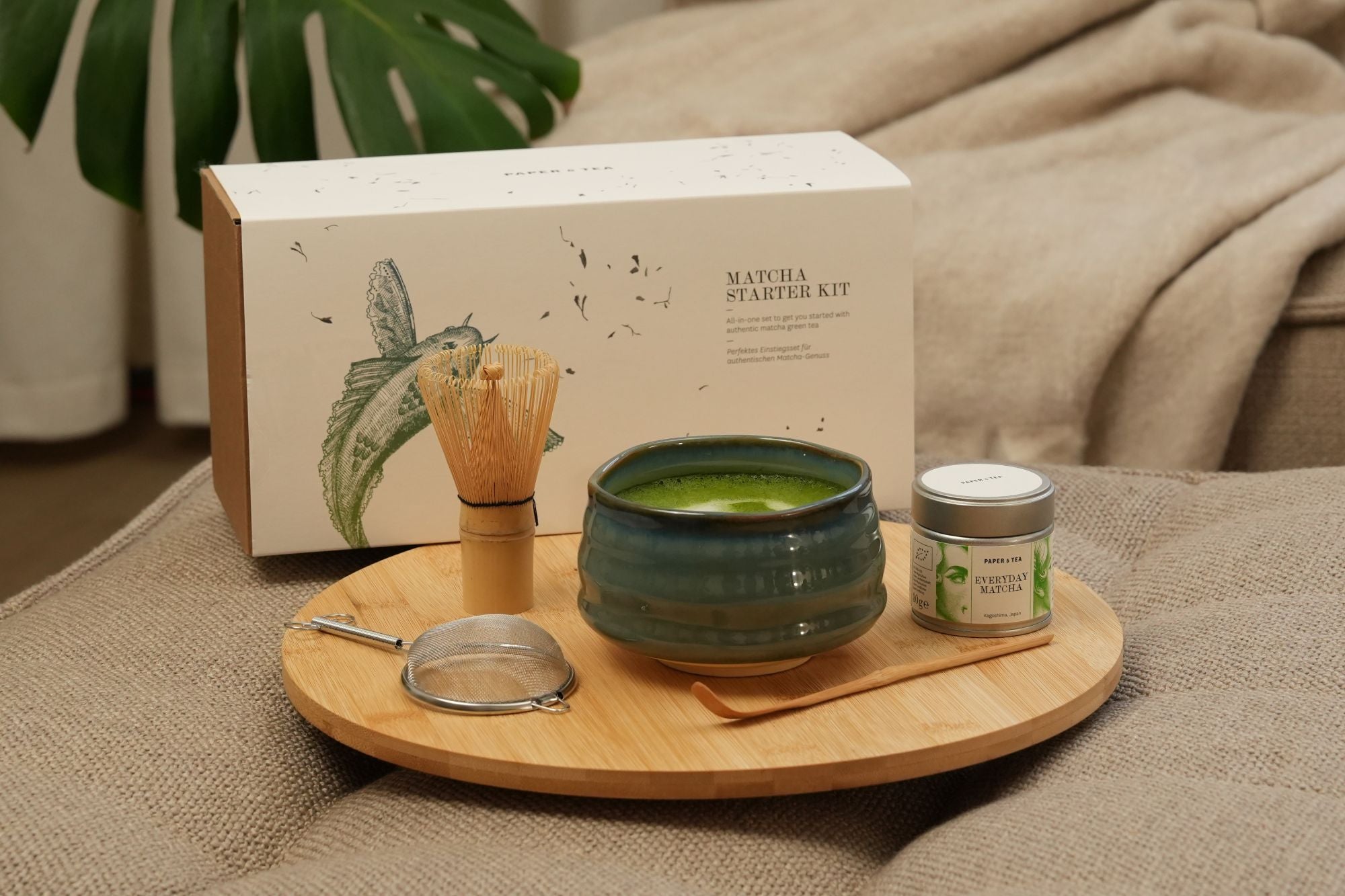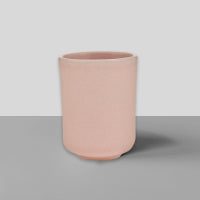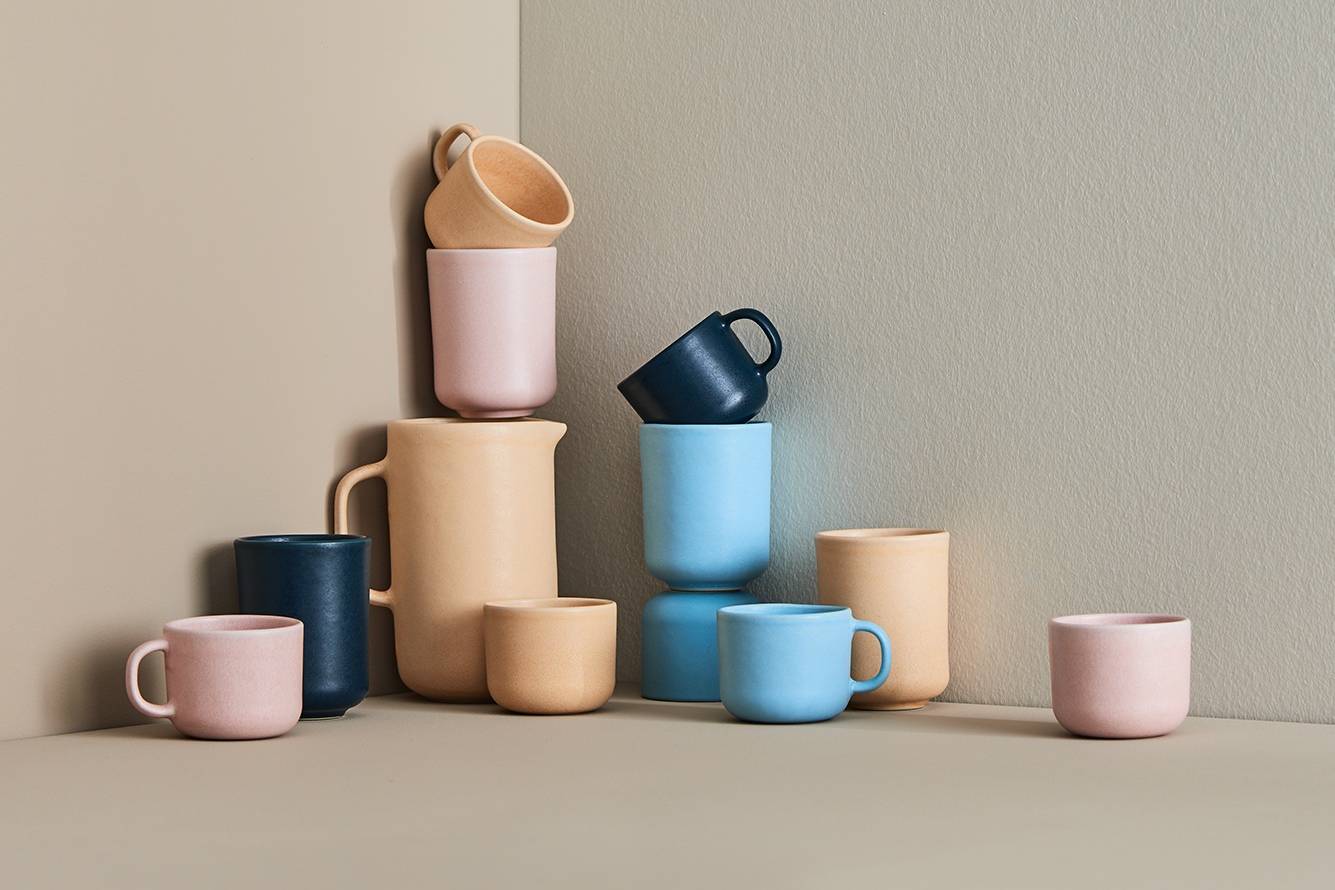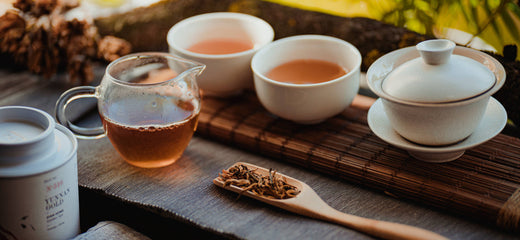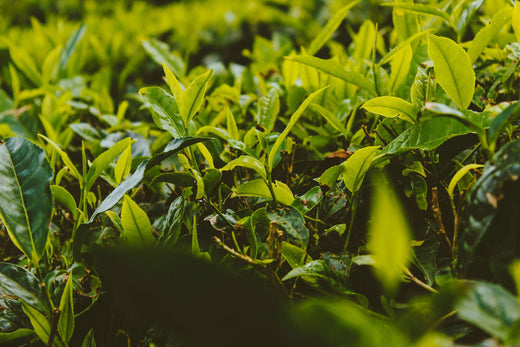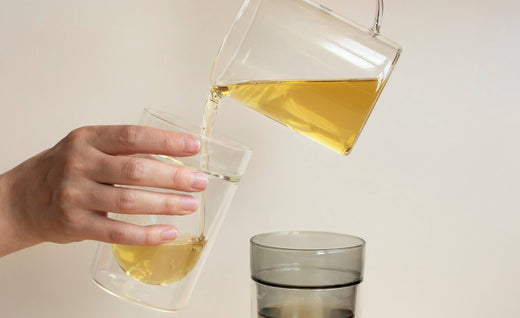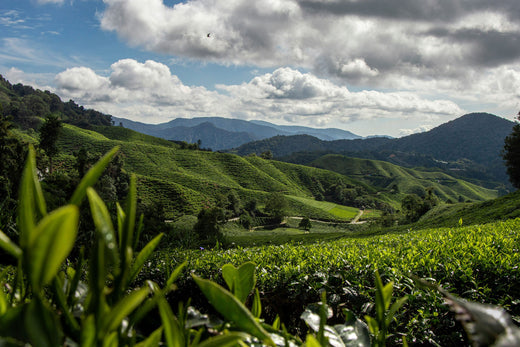Black tea is both a delightful beverage and an aromatic experience. Especially as a morning drink, black tea is very popular. Tea enthusiasts swear by the natural power of caffeine when it comes to starting the day right. The tea leaves of the Camellia Sinensis plant naturally contain caffeine, so all six types of tea contain caffeine. But what determines the caffeine content in tea? We debunk myths about tea and caffeine, explaining why a cup of black tea in the morning is a good idea and how to integrate tea into your daily life.
Join us in exploring the diverse flavor notes, effects, and benefits of black tea.
The Secret of Caffeine
Every tea made from the leaves of the Camellia Sinensis plant naturally contains caffeine. Caffeine is known as an effective booster because it stimulates our central nervous system. Consuming caffeine in certain amounts can improve attention and concentration.
Beverages like coffee and tea are highly popular, partly because the caffeine they contain serves as a natural source of energy.

Black Tea vs. Coffee
It seems to be a never-ending caffeine competition: While some people can't do without their morning cup of coffee, more and more night owls are turning to tea. But is black tea as strong as coffee? Let’s take a closer look at these popular beverages.
Caffeine in Black Tea
Tea leaves naturally contain caffeine. For a long time, the term "theine" was used mainly for tea in contrast to coffee, but essentially theine and caffeine mean the same thing. It's generally not accurate to say that a certain type of tea contains more caffeine than another—although the myth persists that black tea has the highest caffeine content. This assumption is likely because black tea has a strong flavor. However, the flavor has nothing to do with caffeine.
The actual amount of caffeine in your cup depends on numerous factors such as the origin and harvest time of the tea leaves. For instance, the age of processed tea leaves plays a role. In many regions, a tea plant must defend itself against pests. Unlike tea leaves that ripen on the bush for a longer period, young buds of the Camellia Sinensis plant produce an increased amount of caffeine to protect themselves. Its taste is unpleasant to unwanted intruders, so caffeine serves as a defense mechanism for the plant's young buds.
Caffeine in Coffee
How much caffeine you consume with a cup of coffee cannot be determined in general terms. Like tea, coffee comes in many different varieties. The amount of caffeine in your coffee depends on the coffee variety, the beans, the roasting, the preparation, and your portion size. For instance, espresso is roasted longer, which makes it stronger than filter coffee.
Tea or Coffee: Which is Better?
You can't make a definitive statement on which beverage contains more caffeine. Depending on the variety, origin, processing, and preparation, caffeine content varies in both coffee and tea. All types of tea naturally contain caffeine. The myth that only black tea can wake you up is just that—a myth. For example, green and white teas can also be abundant sources of energy.
Tea is a popular and gentle alternative to coffee. The commonly known caffeine kick from coffee often fades after a short time. In contrast, caffeine in tea works much slower, allowing you to benefit from its power-boost in a more sustainable way.
Besides its energetic effect, the irresistible taste of black tea speaks for itself. With fascinating notes ranging from floral and delicate to full-bodied and malty, black tea has captured the hearts of many. Ultimately, whether you choose coffee or tea in the morning depends on your personal preference.
The Right Time for Black Tea
Many black tea enthusiasts appreciate a hot cup in the morning for a smooth start to the day. Infuse your daily life with powerful moments by sipping black tea and enjoy the energy that tastes like an inviting promise of what’s to come.
According to British tradition, black tea is served during the classic tea-time at 5:00 PM. However, we recommend avoiding caffeinated drinks later than that. The caffeine in tea has a stimulating effect and can make you feel more awake after drinking it.
People react differently to caffeine. If you know that you are sensitive to caffeine, you should avoid drinking black tea in the late afternoon and evening. For a good night's sleep, we recommend herbal teas, which are naturally caffeine-free and perfect for a warm cup at any time of the day.

The World of Black Tea
We believe it's a brilliant idea to bring a fresh breeze into your daily life with black tea. For many connoisseurs, tea is a real alternative to coffee. Try the diverse flavor nuances and decide for yourself which aroma you like best.
And it doesn’t have to stop at black tea: if you're looking for an energy-packed source of inspiration, we invite you to further discover the world of tea. All six types of tea naturally contain caffeine. What about trying the natural power-booster Matcha, the powdered green tea from Japan?
